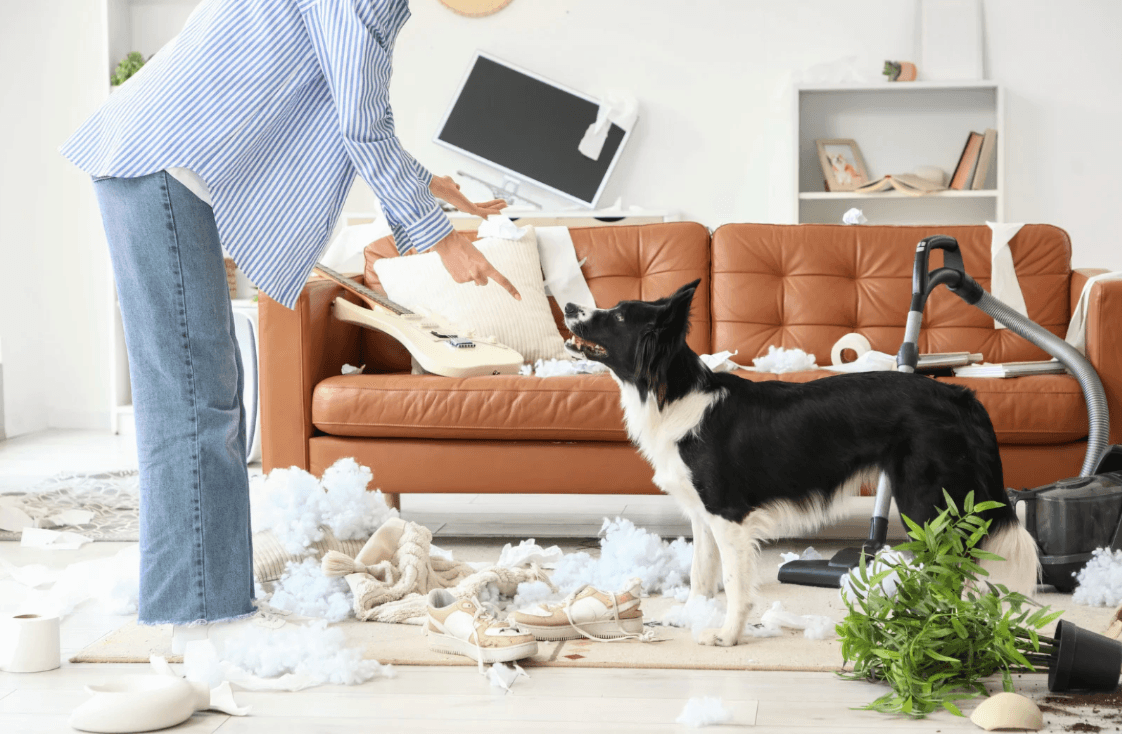Puppy Care Guide
Week 23 – Understanding the Adolescent Phase

Around 23 weeks of age, your puppy enters adolescence — a stage much like a teenager’s puberty. Hormonal and emotional changes may temporarily affect obedience and mood, but with patience, it becomes a key growth milestone.
🧠 What Is the “Adolescent Stage” in Dogs?
Between 5 and 6 months, puppies begin testing limits and exploring independence. Even well-trained dogs may temporarily ignore commands or regress in house-training — not defiance, just development.
- Ignoring known cues like “sit” or “wait”
- Stubborn or selective listening
- Minor house-training setbacks
🐶 Typical Behaviors During Adolescence
- Stops Following Commands — Stay calm and consistent; patience beats strictness.
- Pretends Not to Hear Their Name — Keep sessions short and rewarding to maintain focus.
- Loses Appetite or Becomes Picky — Offer smaller, frequent meals or slightly warm food.
- Becomes Sensitive or Irritable — More vocal or restless; reassure gently.
- Shows Interest in Opposite Sex — Supervise walks and avoid off-leash encounters.
⚠️ Why This Stage Feels Challenging
Teething, curiosity, and boundary-testing combine here — chewing, ignoring recall, or rebellious play. Many families misread this as “bad behavior,” but it’s a normal learning phase. With guidance and empathy, your puppy will mature into a balanced companion.
How to Support Your Puppy Through Adolescence
1️⃣ Channel Excess Energy Productively
- Daily walks with varied routes
- Short obedience or fetch games
- Puzzle toys and nose-work for mental exercise
2️⃣ Address Sensitivity and Aggression
Hormonal changes can make puppies defensive or reactive.
- Avoid scolding or forced contact.
- Redirect with praise for calm behavior.
- Keep routines predictable for security.
3️⃣ Establish Household Rules and Consistency
- All family members must enforce the same rules and commands.
- Reward desired behavior immediately.
- Use calm redirection, not yelling.
4️⃣ Keep Training Short and Encouraging
5–10 minute sessions reinforce focus without frustration. When tired or distracted, pause and resume later — consistency wins.
5️⃣ Maintain Emotional Connection
Beneath the attitude, your puppy is still your loving friend. Gentle affection and trust will shape a confident, loyal adult dog.
❤️ Additional Professional Tips
- Consult your vet about spaying or neutering to manage hormones.
- Encourage short, positive socialization with calm dogs.
- Try enrichment like sniffing games or training classes.
- Avoid harsh corrections or overexcitement.
- Ensure 14–16 hours of sleep daily for hormone regulation.
🐾 Find Dog Training Programs
Want to take your puppy’s training to the next level? PetGo’s Dog Training section will feature step-by-step lessons, expert guidance, and personalized behavior insights to help your puppy grow with confidence.
Explore Dog Training >🐾 PetGo Reminder
Every puppy experiences adolescence differently — some sail through, others test your patience. Stay calm, be consistent, and remember: this phase is temporary. Your steady love will guide them into adulthood with confidence and trust.
Continue with PetGo’s Puppy Care Guide
Training and patience build lifelong trust — PetGo is here for every step of growing together.
© 2025 PetGo. All Rights Reserved
